news
Sanwo-Olu’s development agenda for Lagos
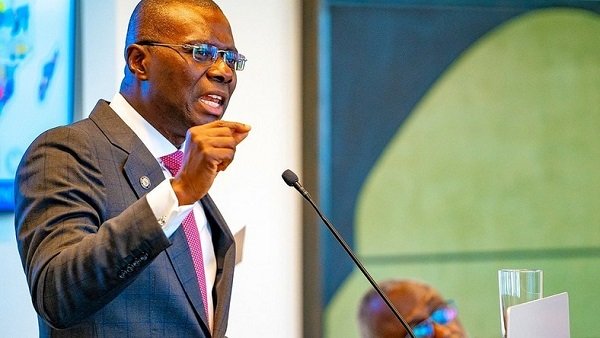

At the outset, the perception of many Lagosians about the Babajide Sanwo-Olu administration was not entirely a positive one. Based on the performance of his predecessors in office since 1999, Lagosians were not convinced that he could step onto their shoes.
Given the mountain of work in all sectors in Lagos somehow Governor Sanwo-Olu’s gentle mien did not fit into the mold of a performer in the eyes of some residents.
But, almost one year after, the ruling All Progressives Congress (APC) in Lagos has once again proved critics wrong.
Since the inception of the administration, Governor Sanwo-Olu has been working quietly in several sectors; to continue from where his immediate processor in office, Akinwinmi Ambode stopped, and also to initiate new policies to up the ante in the development of Lagos.
Deputy Governor Obafemi Hamzat recently unfolded some of the blueprints of the administration, sector by sector, in an interview with the editorial team of the News Agency of Nigeria (NAN).
In the education sector, for instance, Dr. Hamzat said the administration has embarked on a policy reform, which is dubbed ‘Eko Excel’, the state is re-engineering its teaching methods and also adopting a holistic approach to tackling challenges in the sector, to bring out the best in the pupils.
He said: “We started with 300 schools. What that means is that all the primary school teachers will have a tablet that allows them to concentrate on teaching so that they do not need to do all the teachers note that needs to be done and schedule of work.
We have trained them in knowing the essence of teaching. Just changing the essence of teaching and even how they talk to the children/address them. Even if a child does something wrong, there are ways of correcting them.
“Around the world, the focus has always been on the provision of equipment for the classrooms and to have a great classroom for learning but those things don’t teach children as it does not mean the children will come out well. You might have a great classroom but it does not make anything.
So over time, what the state government has done is to focus on the teachers as they are the common denominators. It means we must concentrate on the teachers. They are the common denominator.
“After six years the children will go but the teachers remain over and over again. So we realise that the best thing to do is to concentrate on the teachers, their welfare, skills, their training and the way they approach it. That is what Eko Excel is doing.”
The deputy governor said it is too early to assess the impact of the scheme. He added: “In two to three years’ time, we would see how the teaching method has changed. We would see how it has affected the culture of our education, the children and everything.
We would also be able to gather information better through the equipment that will help us to geo-reference. So, we can know, for instance, in class 4A in Agidingbi Primary School, 20 students came to class or 21 children came at 9 am. – so why are they coming to school late? Is it that they are living far from school?
“All this information will help us to plan well. Also, it has helped us in monitoring the time the teachers resume work.
Also, if a teacher is coming late to school, why is it so? For example, a teacher teaching in Ikorodu and living in Oworonshoki, so why can’t we just move the teacher to around the place he or she lives for convenience and good delivery on the job.
“We are also finding out that some schools have only seven children while in some schools they have up to 60. So it tells us that in some cases, maybe we are building in the wrong places.
So, maybe we need to build more classes in such areas because, in some local governments, the number of children in school is extremely small compared to some others.”
Another component of Eko Excel, the deputy governor said, would address malnutrition among school children. He said primary education is the foundation of development and that it is important to fix it.
He said studies show that 52 per cent of children under five years of age in the northern part of the country are malnourished. He said in the south the percentage is about 20.
Hamzat said while it is necessary to build roads, provide amenities and other things that it is equally important to take care of the younger population by addressing malnutrition among children between the ages of zero to five because, as doctors have told us, this is the time the brain develops.
He said: “So we have a committee on nutrition and also a department on nutrition but what is surprising is that study shows that it is not the children of the poor that are mostly malnourished. The children of the rich and middle class can actually be malnourished as well if they are not eating right because as children they like to eat anything.
“If we can reduce that number, it would be a fantastic achievement even though it is not something that people like to talk about but the impact will be good because we would now build children that are healthy and intelligent thereby the future of our country will be secured.”
On the health, he said the Lagos State Government has increased the budget to the sector by almost 70 per cent and are planning to build new hospitals across the state.
He said: “We want to make sure that every part of Lagos is covered in terms of healthcare delivery services. For instance, we are planning to build a General Hospital in Ojo; that axis doesn’t seem to have any at the moment. We are also planning to build a spinal injury hospital somewhere in Gbagada.
We are also getting people to help us design as we have been made to understand that a lot of our General Hospitals needs to be redesigned.
“For example, you go to UCH, Ibadan at night without air conditioner (AC) you feel cold because of the architectural design. It is designed so that air can pass through… that is cross ventilation. We have gotten people that design hospitals for the tropics.”
Hamzat said the government is not just interested in building new structures, but building ones that are easier to maintain and allows for ventilation.
He added: “Part of the challenge in most hospitals is that you go for the treatment of one ailment and later get infected with another thing.
So these are the questions we asked our medical team. We are not medical doctors but we know these things happen. So, we are redesigning our hospitals.”
On the hardship imposed on residents by the ban on commercial motorcycle and tricycle operators, otherwise known as Okada and Keke by the government, Dr. Hamzat said the underlying motive behind the policy is to reduce accidents on the roads and thereby preserve the lives of Lagosians.
He said: “The most important thing for us is that people must be alive before they can do anything. When life is lost, then there is really nothing else. It’s the dead end.
So for us what is important is how do we secure this society? There are details and information that the government sometimes has that you can’t even share with citizens because they won’t be able to sleep if you divulge such information.”
The deputy governor said critics of the policy have been insisting that alternatives ought to have been put in place before the ban came into effect.
He said: “But, I disagree because it will have been too late if we delayed further; if we failed to secure the lives of our children we will be very irresponsible. That is why it was restricted in certain areas where we saw the upsurge.”
On the menace of members of the National Union of Road Transport Workers (NURTW) on Lagos roads, the deputy governor said the challenge is that it is a national union recognised by law.
He said like the Association of Academic Union of Universities (ASUU), there are many things that members of the union do that the state government does not support, “but as a union recognised by law in our country, we will keep engaging them in dialogue.”
He said: “Whether we like it or not, they have some roles that they play in the transportation sector because you know what, the transportation sector is not something that private people go into without subsidy from government all over the world.
But they are doing it without such assistance, so we must find a way to make it better for them and for us as a people. The engagement must continue for us to have a peaceful society.”
The deputy governor spoke extensively on the traffic gridlock in Lagos, attributing it, for the most part, to the breakdown of vehicles, which impede the free flow of traffic.
The Lagos number two citizen also attributed the traffic gridlock to ongoing road constructions in various parts of the city. He said: “For instance, at Ojota, we are replacing the whole stretch of Ikorodu Road with concrete. At Apapa-Oshodi Expressway, we are also doing concrete.
The problem is that on that corridor, we are doing 300 metres every day but it takes 14 days to execute it properly.
So, because it takes 14 days, no vehicle can pass within those number days. It means that for a long time, that corridor would continue to experience traffic while the project is ongoing. a challenge about there.
“In fact, it is one of the reasons that we are talking to the company that maybe we should use reinforced bitumen rather than concrete, particularly as the construction work approaches Oworonshoki.”
Alaka, he added, is also experiencing a similar traffic gridlock because of the expansion project also ongoing there, it is a problem.
Because a lot of these things are happening, there will be (gridlock). “But, I think it is better to do it once and in another six or seven months, everybody will be okay,” he added.
Hamzat said the administration is taking advantage of the body of water that surrounds Lagos, by developing water transport. He said 14 boats were recently purchased and are being used to convey people in a most comfortable way.
He urged many residents along the coastal line to take advantage of the waterways to get to their destinations, and thereby reduce pressure on the roads.
His words: “We need the water not just to farm but also for transportation. The Lagos State Government just procured those 14 new boats. The beauty of it is that all those boats were built in Nigeria. Of course, we brought the engine, but we have been able to build that capacity to build boats.”
Hamzat said Lagos deserves a special status because of the nature of the responsibilities it is shouldering within the Nigerian federation. He said the state is pursuing it through a bill on the floor of the Senate initiated by Senator Oluremi Tinubu.
He said: “We are pushing it; maybe we are going about it in a different way. It might not be in the newspapers. It is by talking to everybody that is involved in the process. It is really going on but in a different way. If something is not working in a particular way, you try another approach.”
On the perceived heavy borrowing in Lagos and the debt profile, he said there is no way the government can meet up with the huge infrastructural deficit without borrowing. He said: “There is a musician in Epe in the 1970s; he is dead now.
His name is Ligali Mukaiva; he was not educated, but he said something profound that has stuck to my memory since. I was in primary school then.
The man sang a song that any businessman that doesn’t use other people’s money will not succeed. So, the reality is, where do you get resources to build for today?
“I remember during Asiwaju Tinubu’s government when they took a bond of 15 billion. The opposition said Oh; he has mortgaged the lives of the young people.
That loan has been paid. During BRF government, we took 375 billion bonds, that bond has been paid. Without that, we cannot build the Lekki Link Bridge.”
He said Lagos gets only N8 billion or N9 billion monthly from federal allocation. “By the time you pay salaries, you only have N1 billion left. What can you do with N1 billion? So, the reality is, how do you source the find for infrastructural development?” he said.
news
UPDATE : COUP PLOT: TIMIPRE SYLVA FLED NIGERIA, AS NIGERIA ARMY RAIDS HIS ABUJA RESIDENCE, ARRESTS HIS BROTHER
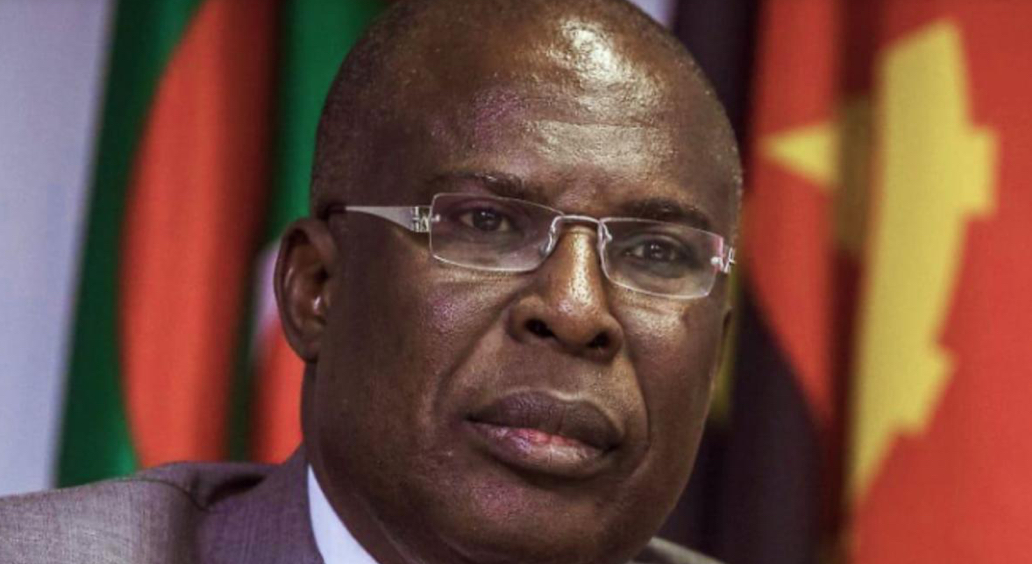
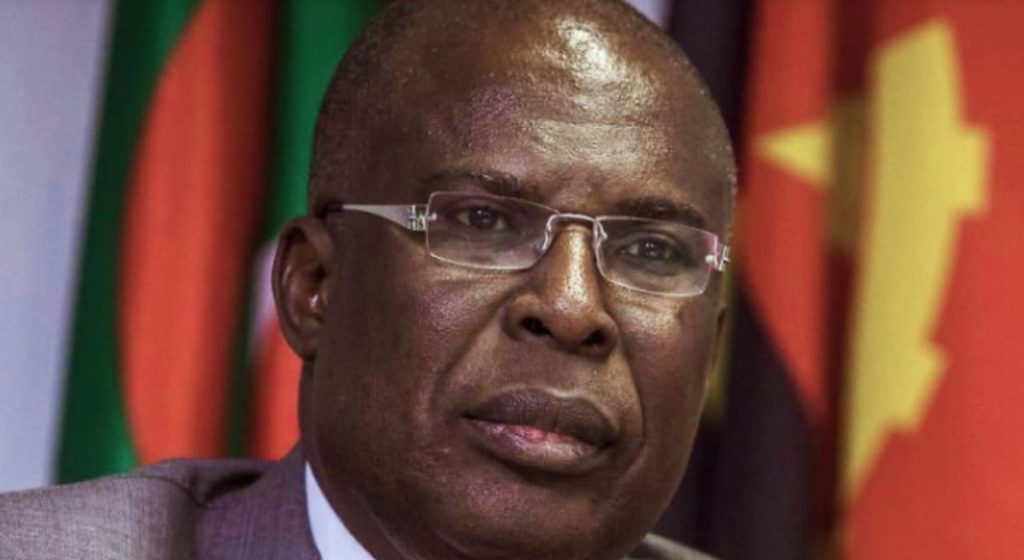
Multiple security sources confirmed to our correspondence on Tuesday that the army raid occurred at Sylva’s home in the Maitama area of Abuja.
Some Nigerian Army personnel have raided the Abuja residence of a former governor and former Minister of State for Petroleum Resources, Timipre Sylva, in connection with an alleged coup plot currently under investigation by the Defence Intelligence Agency (DIA).
Multiple security sources confirmed on Tuesday that the army raid occurred at Sylva’s home in the Maitama area of Abuja.
According to insiders, a “special military team” carried out the operation after intelligence linked the “former South-South governor” to secret meetings allegedly held with some of the detained military officers.
“Nigerian Army special team ransacked the home of Timipre Sylva, who is believed to have fled Nigeria,” one top source familiar with the development told Newsthumb
“He is the South-South former governor frequently mentioned in the case. His brother, named Paga, was picked up during the raid. The operation also extended to his Bayelsa residence.”
Another security insider said that while no official statement had been issued regarding the raid, the action was “not random” but “a direct response to intelligence linking certain political figures to the alleged plotters.”
This development comes amid growing tension within the armed forces following SaharaReporters’ exclusive report recently, that at least 16 senior military officers had been detained incommunicado by the DIA over an alleged coup plot.
The detained officers, drawn from the Army, Navy, and Air Force, have been held for over three weeks in an undisclosed Abuja facility under what sources described as “unusual and suspicious conditions.”
Family members told our correspondence they initially believed their relatives had been kidnapped, as there was no official communication from the military regarding their arrests.
“It’s been 18 days since those 16 officers were detained in an undisclosed location. At first, we thought our brother was kidnapped before finding out what transpired from his friend who works in the NSA office,” a family member had said.
Security analysts have questioned why the DIA, an intelligence agency under the Ministry of Defence, is spearheading the investigation instead of allowing each military service to handle its personnel internally, a move seen as “highly political.”
“If the military were truly conducting a disciplinary operation, over 10,000 cases could emerge. Why only 16 officers, and why hand them to the DIA?” one retired officer asked. “This smells of politics. There’s clearly more going on behind the scenes.”
Speculations are now rife that the alleged plot and subsequent arrests may have deeper political undertones, potentially involving some former office holders with ties to late ex-President Muhammadu Buhari’s administration.
Sylva, a former governor of Bayelsa State and a close ally of late Buhari, served as Minister of State for Petroleum Resources between 2019 and 2023.
He was also the All Progressives Congress (APC) governorship candidate in the November 2023 Bayelsa election, which he lost to incumbent Governor Douye Diri of the People’s Democratic Party (PDP).
Former Petroleum Minister, Timipre Sylva who is under investigations for plotting a Military coup to topple the Government of President Bola Tinubu, fled Nigeria to Senegal from where he is to go into hiding in Argentina, a South American country.
Insiders said the former Minister fled through the creeks immediately he got wind that the coup plot had leaked.
Sylva allegedly has several businesses in Senegal and Argentina and was lobbying to be made Nigerian Ambassador to Argentina.
Highly placed sources told me that the first military officer arrested in connection with the coup plot wasted no time in naming Sylva as the arrowhead and financier of the coup plot.
The source also confirmed that about N46billion was traced to an account linked to the former Petroleum Minister.
The Abuja home of the former was raided by officials from the Defence Intelligence Agency, DIA. His brother, Paga, was picked up during the raid. This was after his Bayelsa residence had earlier been raided where incriminating evidence were allegedly found including cash in foreign denominations.
Sylva is alleged to have provided fundings for the coup operation.
news
Gymnastics Leadership Crisis: Stakeholders Insist on Transparent and Inclusive Election
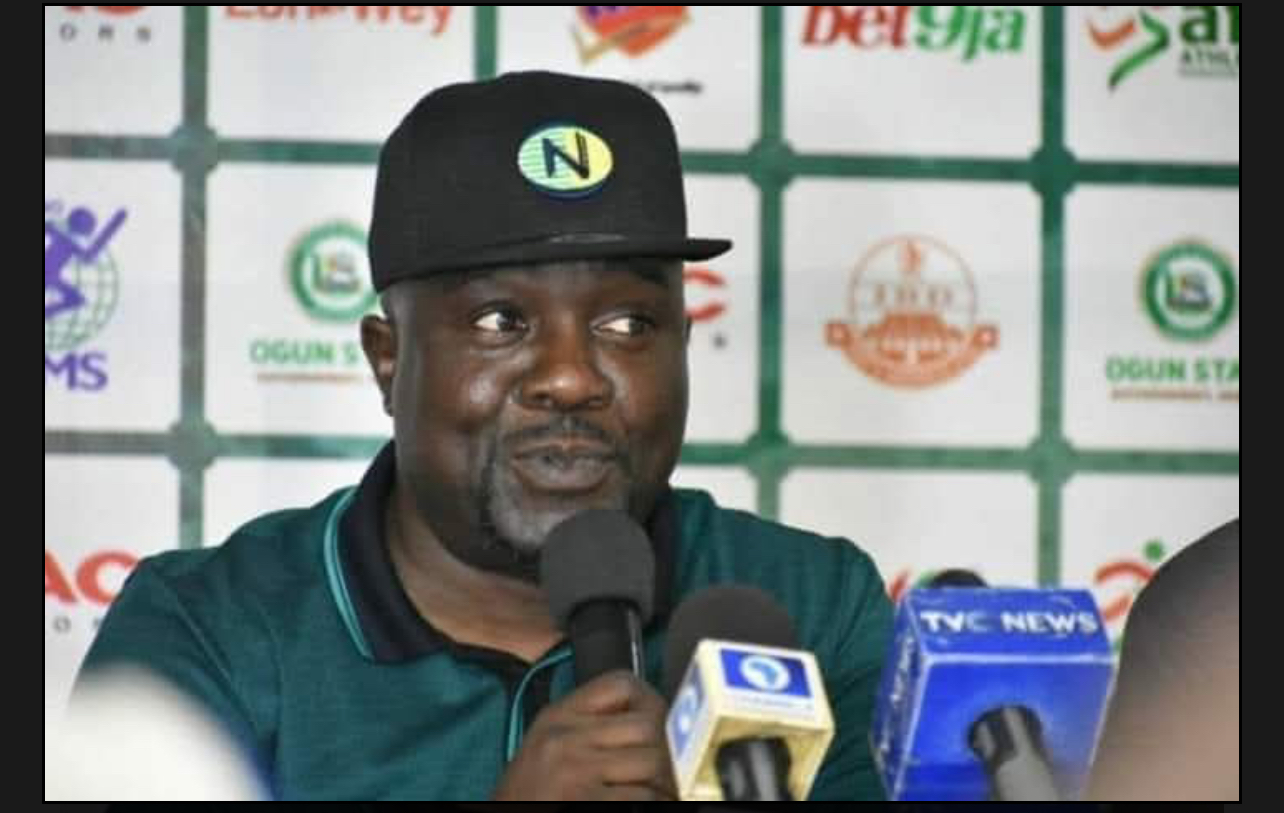
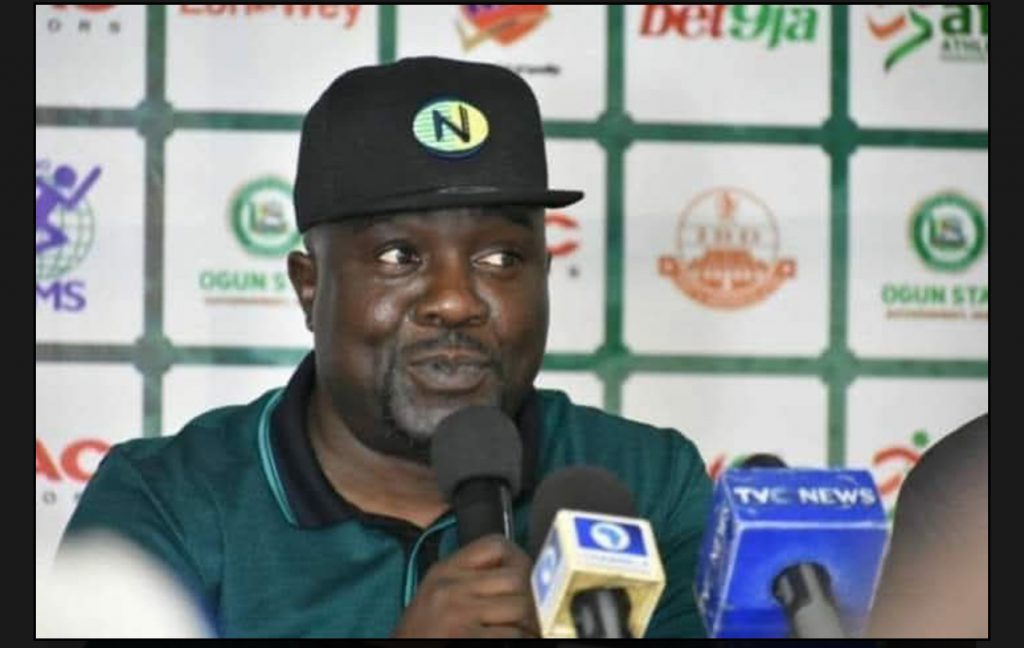
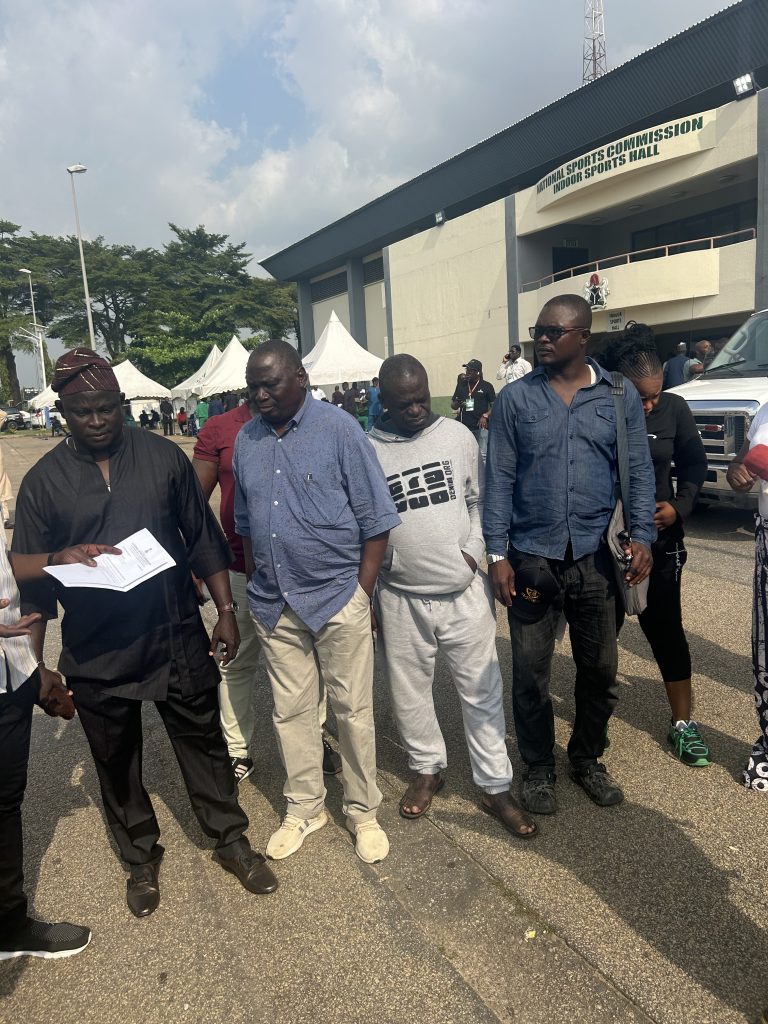 The outgoing President of the Gymnastics Federation of Nigeria (GFN) had earlier conducted an election which was later nullified by the National Sports Commission (NSC) for failing to meet the required legal standards.
The outgoing President of the Gymnastics Federation of Nigeria (GFN) had earlier conducted an election which was later nullified by the National Sports Commission (NSC) for failing to meet the required legal standards.
The Director General of the National Sports Commission, Bukola Olopade, has promised to address and resolve the leadership crisis currently engulfing the Gymnastics Federation of Nigeria.
This follows renewed calls by one of the chairmanship candidates, Alhaja Kafilat Olalere, who insisted on a transparent and all-inclusive election to choose the executives of the federation.
The NSC had fixed dates for fresh elections on two different occasions, but both attempts failed to materialize. This left many delegates—who had converged on Abuja over the weekend to participate in elections into various sporting federations—bewildered and dissatisfied.
Speaking during the elections of other federations under the NSC, held in Abuja, Olopade said he would meet with the two key contenders in the GFN to resolve the crisis.
However, Olalere, who is contesting for the GFN presidency against Kelvin Erunmwase, maintained that the only way to resolve the impasse is to proceed with an election.
She emphasized that only a properly conducted election—one that allows all stakeholders to participate—would be acceptable to her.
Olalere told journalists that elections into other federations had been encouraging and peaceful.
She said:
“We are just not happy that our federation’s election did not hold. That is, the Gymnastics Federation of Nigeria. We received correspondence from the Sports Commission that there would be an election on the 25th.
Every delegate who was elected and expected to vote is here. Everybody came from across the nation, only to be told that there would be no election.
But we have not been informed as to why the election is not going to hold. Hopefully, before the end of the entire election process, we will get feedback on when it will be conducted. People have come in from every state of the federation to participate, so we are still waiting. The election is still very much in process—the day is still young.”
Responding to the DG’s promise to resolve the crisis through dialogue between the two candidates, Olalere said:
“No, it has to be an election. We’ve had enough round tables and back-and-forths. The only thing that will resolve this issue once and for all is an election.
Yes, there was a round table meeting before now, but it was inconclusive. If a proposition is made and one party still disagrees, then we must go to the polls.
The election is what determines who wins and who loses. We just want everything to be transparent. We want an election, not a selection.
Stakeholders want to participate in choosing who leads them for the next four years. Disenfranchising any group will not sit well with the gymnastics community.
We need peace and harmony in the next administration, and the only way to achieve that is to allow people to exercise their constitutional right to vote for their preferred candidate.”
Other stakeholders of the Gymnastics Federation of Nigeria echoed the same position, stressing that an election is the only way out of the current logjam.
Dr. Ajibola Samson of the Nigeria Association for Physical, Health Education, Recreation, Sports, and Dance (NAPHER-SD) emphasized that the process must be inclusive, with no group under the federation left out.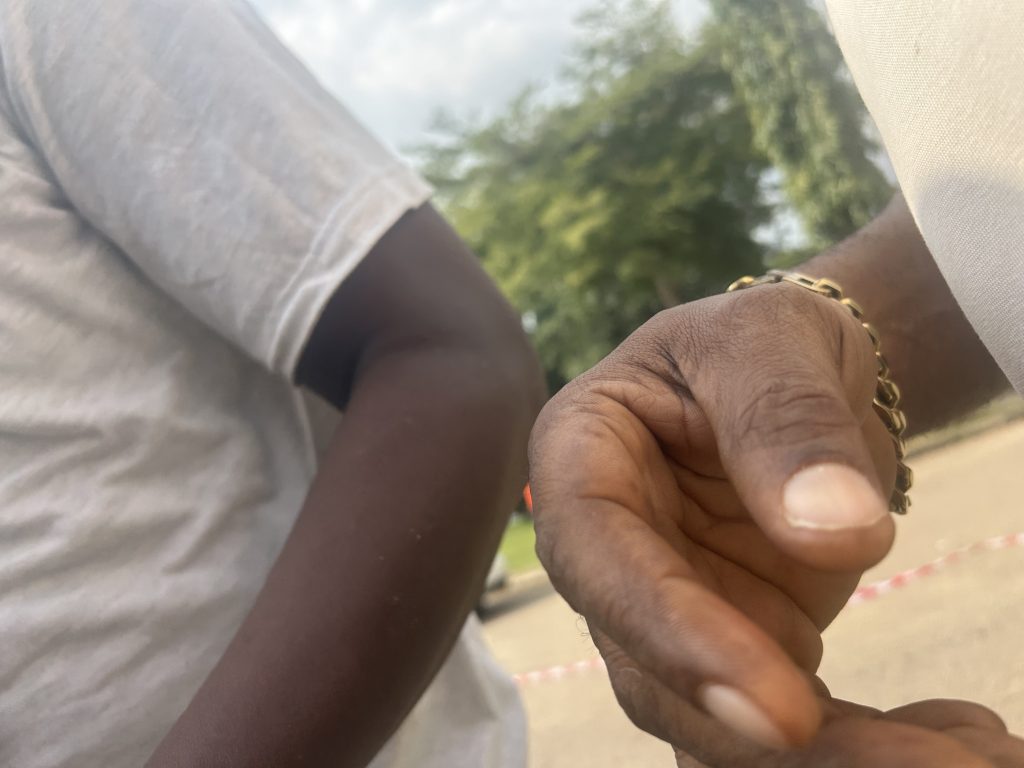
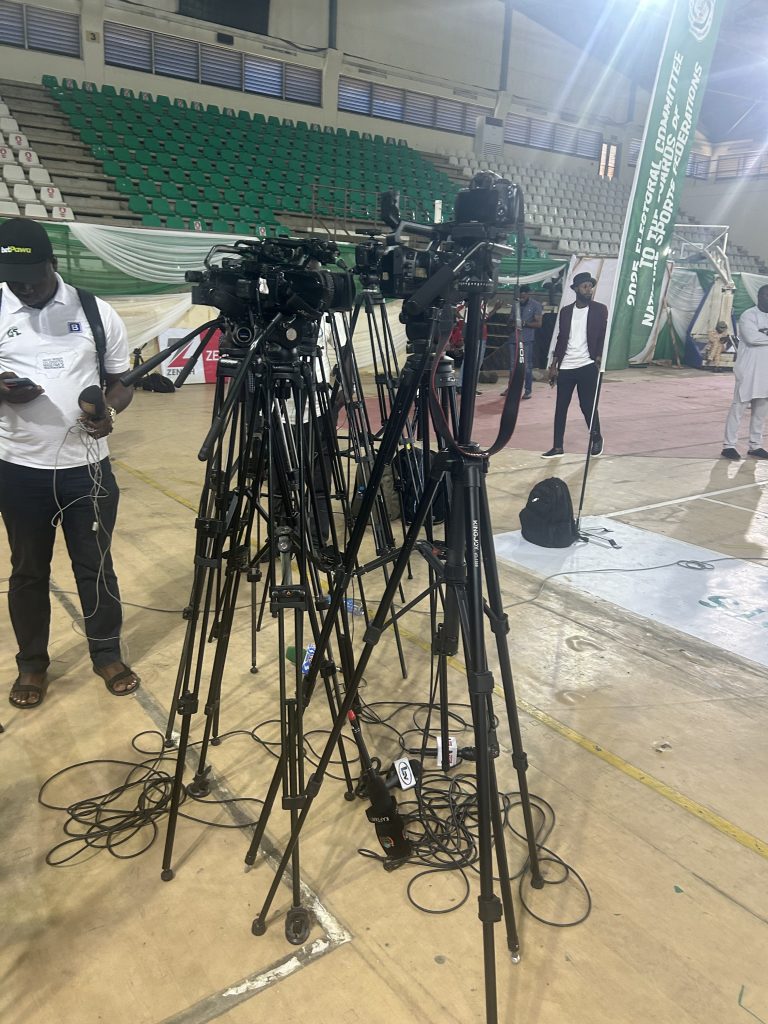
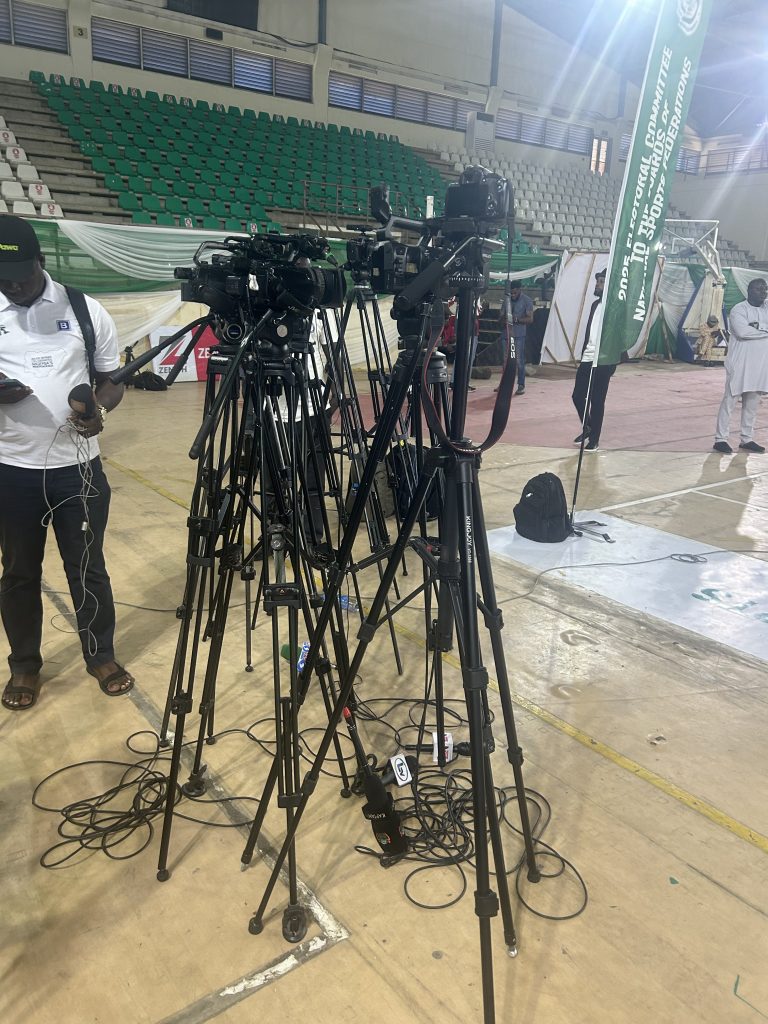
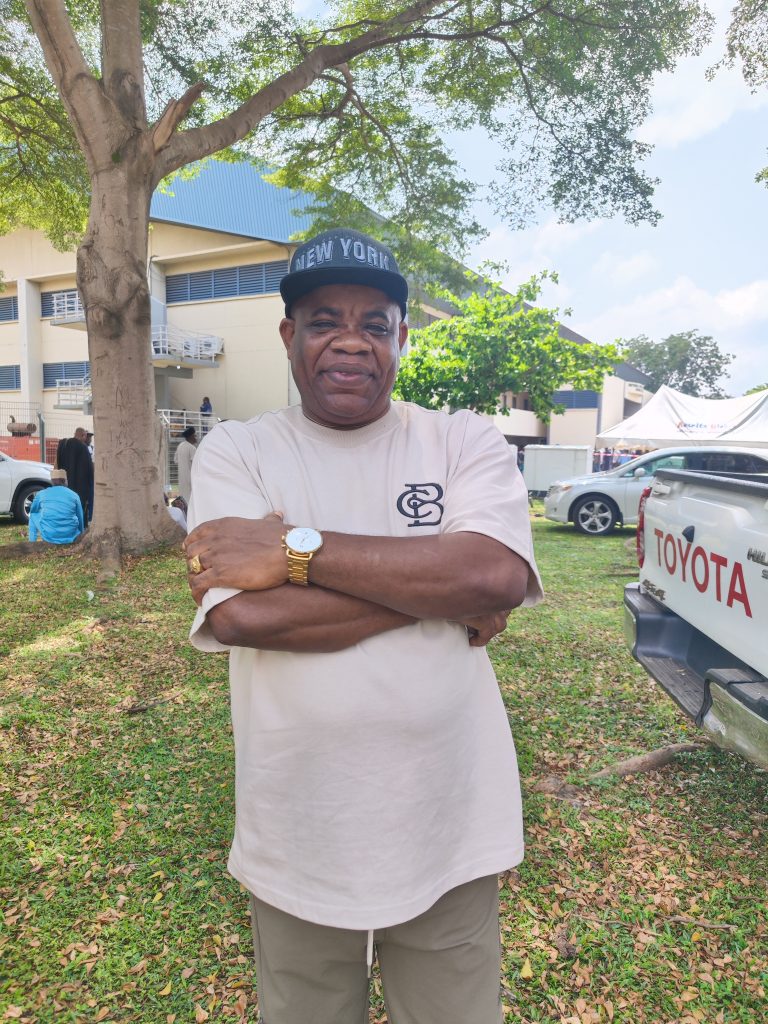
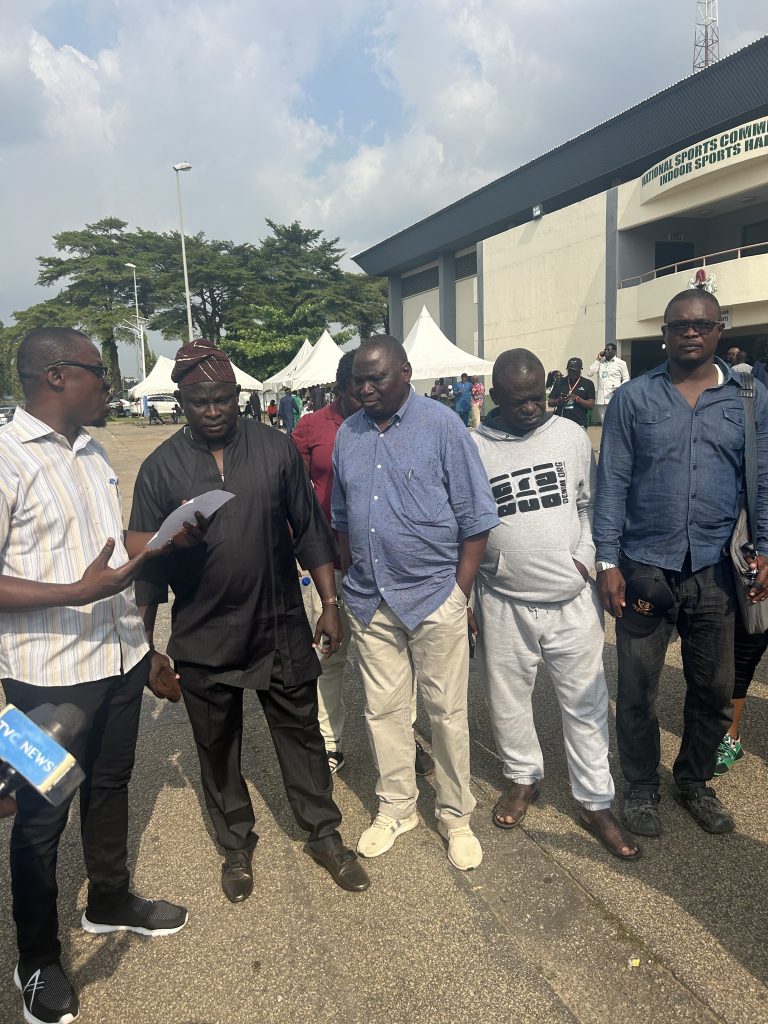
Similarly, Richard Jatau (North East Representative), John Abiodun Oyewuwo (South West Representative), and Dr. Oladipo Samuel, a stakeholder from Ekiti, expressed disappointment that the GFN election did not hold as scheduled on Saturday.
news
BREAKING: Tinubu replaces Service Chiefs, names Gen. Oluyede CDS
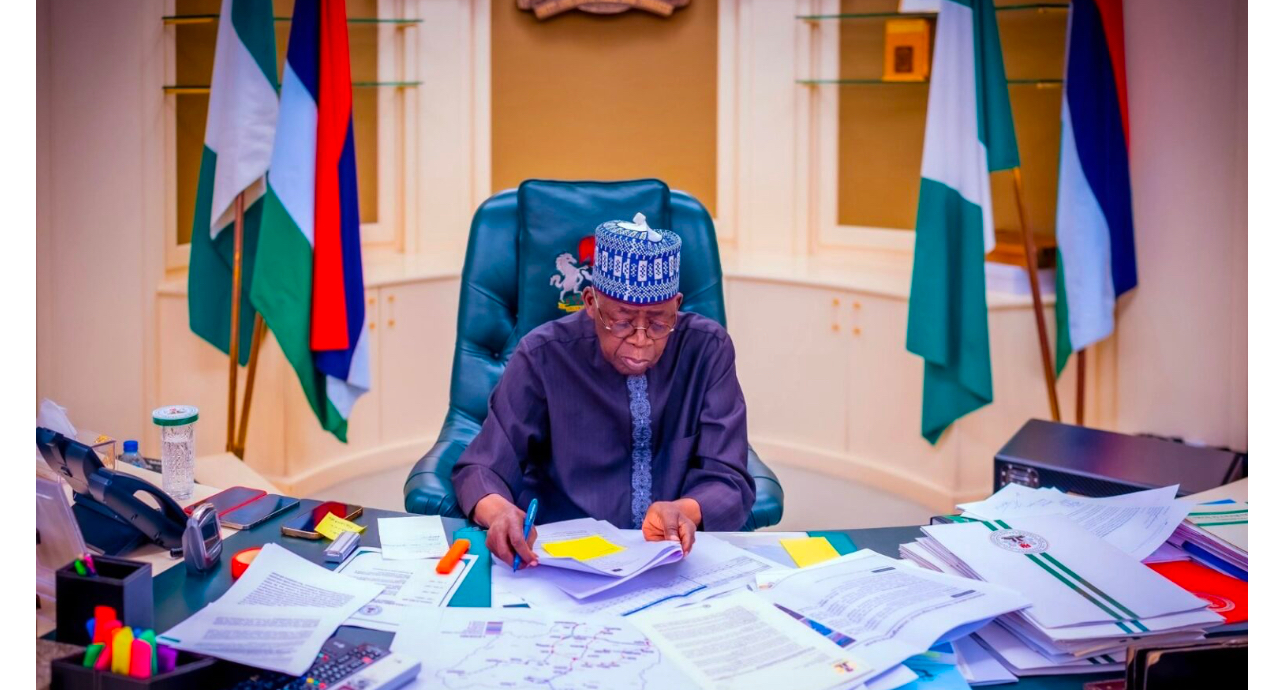
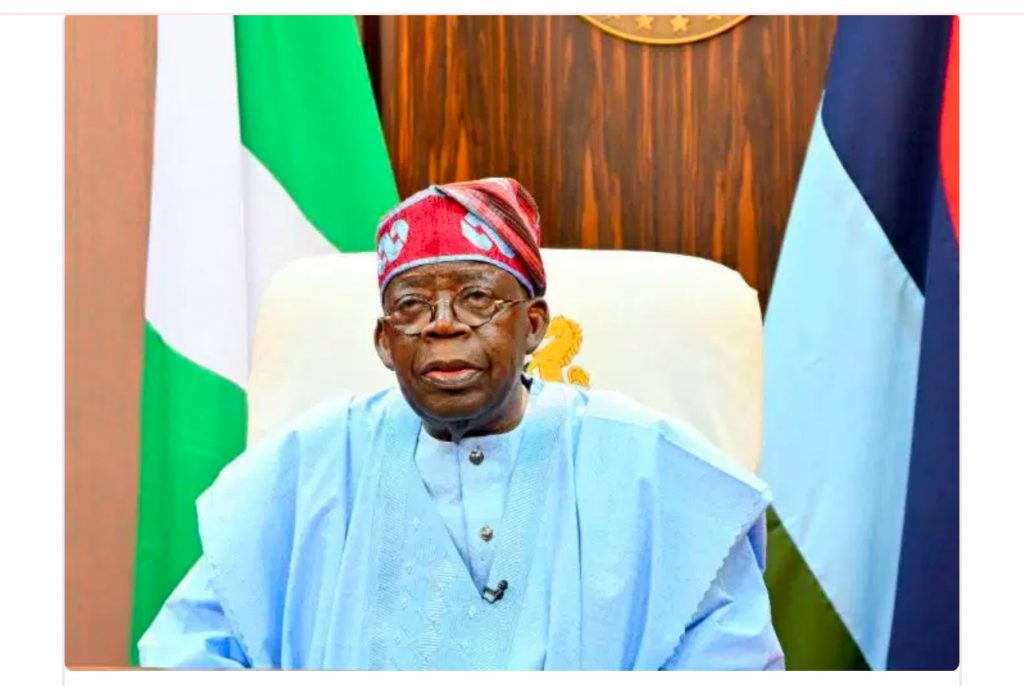 President Bola Ahmed Tinubu has approved major changes in the leadership of the Armed Forces, appointing new Service Chiefs in a decisive move aimed at strengthening national security architecture.
President Bola Ahmed Tinubu has approved major changes in the leadership of the Armed Forces, appointing new Service Chiefs in a decisive move aimed at strengthening national security architecture.
According to a statement on Friday by his Special Adviser on Media and Public Communication, Chief Sunday Dare, the President named former Chief of Army Staff, Lt. General Olufemi Oluyede as the new Chief of Defence Staff, replacing General Christopher Musa.
Major-General W. Shaibu has been appointed Chief of Army Staff, Air Vice Marshal S.K. Aneke takes over as Chief of Air Staff, while Rear Admiral I. Abbas is the new Chief of Naval Staff.
The Chief of Defence Intelligence, Major-General E.A.P. Undiendeye, retains his position.
All appointments, the statement said, take immediate effect.
President Tinubu, who is also the Commander-in-Chief of the Armed Forces, expressed deep appreciation to the outgoing Chief of Defence Staff, General Musa, and other retired Service Chiefs for their “patriotic service and dedicated leadership” during their tenure.
He charged the newly appointed military heads to justify the confidence reposed in them by demonstrating “enhanced professionalism, vigilance, and comradeship” in the discharge of their duties.
The shake-up in the military hierarchy comes as part of ongoing efforts by the Tinubu administration to reposition the security sector, improve coordination among the services, and sustain momentum in the fight against terrorism, banditry, and other security challenges across the country.
-

 news5 years ago
news5 years agoUPDATE: #ENDSARS: CCTV footage of Lekki shootings intact – Says Sanwo – Olu
-

 lifestyle5 years ago
lifestyle5 years agoFormer Miss World: Mixed reactions trail Agbani Darego’s looks
-

 health5 years ago
health5 years agoChairman Agege LG, Ganiyu Egunjobi Receives Covid-19 Vaccines
-

 lifestyle4 years ago
lifestyle4 years agoObateru: Celebrating a Quintessential PR Man at 60
-

 health5 years ago
health5 years agoUPDATE : Nigeria Records 790 new cases of COVID-19
-

 health5 years ago
health5 years agoBREAKING: Nigeria confirms 663 new cases of COVID-19
-

 entertainment9 months ago
entertainment9 months agoAshny Set for Valentine Special and new Album ‘ Femme Fatale’
-

 news5 months ago
news5 months agoBREAKING: Tinubu swears in new NNPCL Board


